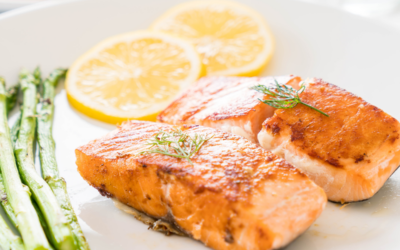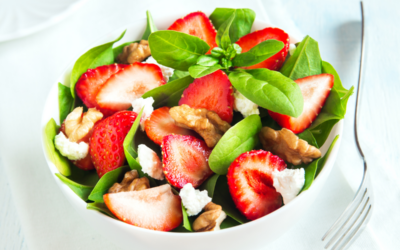Summary:
5 ways to reduce sugar cravings:
1. Increase protein intake to help reduce sugar cravings.
2. Get enough sleep to regulate hormones that affect appetite and reduce sugar cravings.
3. Manage stress levels to reduce emotional eating and cravings for high-sugar foods.
4. Stay hydrated to reduce fatigue and prevent mistaking thirst for hunger.
5. Eat regular, balanced meals to regulate blood sugar levels and reduce sugar cravings.
Sugar cravings
The negative effects of consuming too much sugar
Consuming too much sugar can have adverse effects on our health. Some of the potential consequences of consuming too much sugar include the following:
- Weight gain: Sugar is high in calories, and consuming too much can lead to weight gain and obesity.
- Type 2 diabetes: Consuming too much sugar can lead to insulin resistance and an increased risk of developing type 2 diabetes.
- Heart disease: High sugar consumption has been linked to an increased risk of heart disease and other cardiovascular problems.
- Tooth decay: Sugar is a significant cause of tooth decay and can lead to cavities and other dental problems.
- Inflammation: Excessive sugar consumption can lead to chronic inflammation, which has been linked to various health problems, including cancer, Alzheimer’s disease, and depression.
Reducing sugar intake can reduce the risk of these negative health outcomes.
1. Increase Protein Intake
How protein can help reduce sugar cravings
Increasing protein intake
Examples of high-protein foods include:
- Lean meats, such as chicken, turkey, and fish
- Eggs
- Greek yogurt
- Nuts and seeds
- Beans and legumes
- Tofu and tempeh
Incorporating these foods into meals and snacks
2. Get Enough Sleep
The link between sleep and sugar cravings
Studies have shown that people who don’t get enough
To improve sleep quality and reduce sugar cravings, it’s crucial to prioritize
- Establishing a consistent sleep schedule
- Creating a relaxing sleep environment
- Avoiding screens and stimulating activities before bedtime
Limit caffeine and alcohol intake- Engaging in relaxation techniques such as meditation or deep breathing.
By prioritizing sleep, we can reduce sugar cravings and promote overall health and wellness.
Tips for improving sleep quality
Here are some tips for improving sleep quality:
- Establish a regular sleep schedule: Try to go to bed and wake up at the same time every day, even on weekends.
- Create a
sleep-conducing environment: Ensure your bedroom is quiet, cool, and dark. Use blackout curtains, earplugs, or a white noise machine if necessary. - Limit caffeine and alcohol intake: Avoid caffeine and alcohol several hours before bedtime as they can interfere with sleep quality.
- Avoid screens before bedtime:
Electronic devices emit blue light that disrupts sleep, so avoid usingscreens at least an hour before bedtime. - Engage in relaxation techniques: Activities such as meditation, deep breathing, or gentle yoga
can promote relaxation and prepare the body for sleep. - Establish a bedtime routine: Create a relaxing routine, such as taking a warm bath or reading a book,
to signal the body that it’s time to sleep.
Implementing these tips can improve sleep quality and reduce sugar cravings.
3. Manage Stress Levels
How stress can trigger sugar cravings
Additionally, stress can lead to emotional eating, where we use food to cope with stress or negative
Therefore, finding ways to manage stress levels to reduce sugar cravings is
Regular exercise can reduce stress and improve mood.Relaxation techniques such as meditation, deep breathing, or yogacan reduce stress levels andpromote calm. - Engaging in activities that bring joy and relaxation, such as spending time in nature, listening to music, or spending time with loved ones.
- Seeking support from a therapist or counselor who can help identify and address sources of stress and provide coping strategies.
Managing stress levels can reduce sugar cravings and improve overall health and wellness.
Techniques for reducing stress
Here are some techniques for reducing stress:
- Exercise regularly: Engage in physical activity, such as walking, running, or yoga,
to reduce stress and improve mood. - Practice relaxation techniques: Techniques such as deep breathing, meditation, or progressive muscle relaxation
can reduce stress levels andpromote calm. - Engage in enjoyable activities: Engage in activities you enjoy, such as reading, listening to music, or spending time with loved ones
to reduce stress. - Get enough sleep: Adequate sleep reduces stress and promotes overall health and wellness.
- Eat a healthy diet: A balanced diet rich in fruits, vegetables, whole grains, and lean protein
can reduce stress levels and promote overall health. - Seek support: Talk to a trusted friend or family member, or consider seeking professional support from a therapist or counselor.
By incorporating these techniques into your daily routine, you can reduce stress levels and improve overall health and
4. Stay Hydrated
The importance of staying hydrated
Drinking enough water helps regulate bodily functions and maintain proper hydration levels, which
It’s
In addition to water, other hydrating beverages include herbal tea, coconut water, and low-sugar fruit juice. Limit or avoid sugary drinks, such as soda and energy drinks; otherwise, they can contribute to sugar cravings and negatively
Staying hydrated and drinking enough water
How dehydration
Dehydration can lead to sugar cravings because it
Also, dehydration can disrupt the body’s ability to regulate appetite and hunger, increasing cravings for high-carbohydrate, high-sugar foods. Because the body
Therefore, staying hydrated throughout the day is vital to
5. Eat Regular Meals
The importance of regular meals in reducing sugar cravings
Eating regular meals
Eating regular, balanced meals that mix carbohydrates, protein, and healthy fats
It’s
By eating
Balanced meals
Eating balanced meals that include a mix of carbohydrates, protein, and healthy fats can
By incorporating balanced meals into our diet that include a mix of carbohydrates, protein, and healthy fats, we can regulate blood sugar levels and
Takeaway















